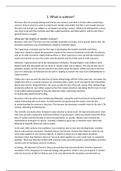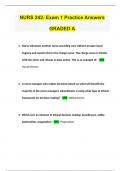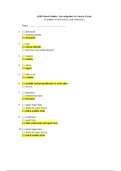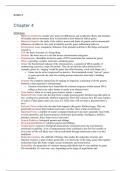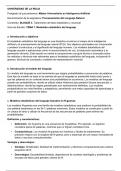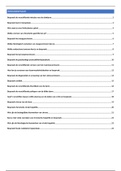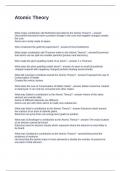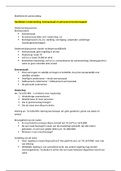Samenvatting
Wetenschapstheorie - samenvatting boek
- Instelling
- Rijksuniversiteit Groningen (RuG)
Dit is een duidelijke en volledige samenvatting van het boekje 'Philosophy of science : a very short introduction (2nd edition) die bestudeerd moet worden voor het vak Wetenschapstheorie aan de Rijksuniversiteit Groningen. Het boekje is wat moeilijker door te komen, dus daarom is deze samenvattin...
[Meer zien]
